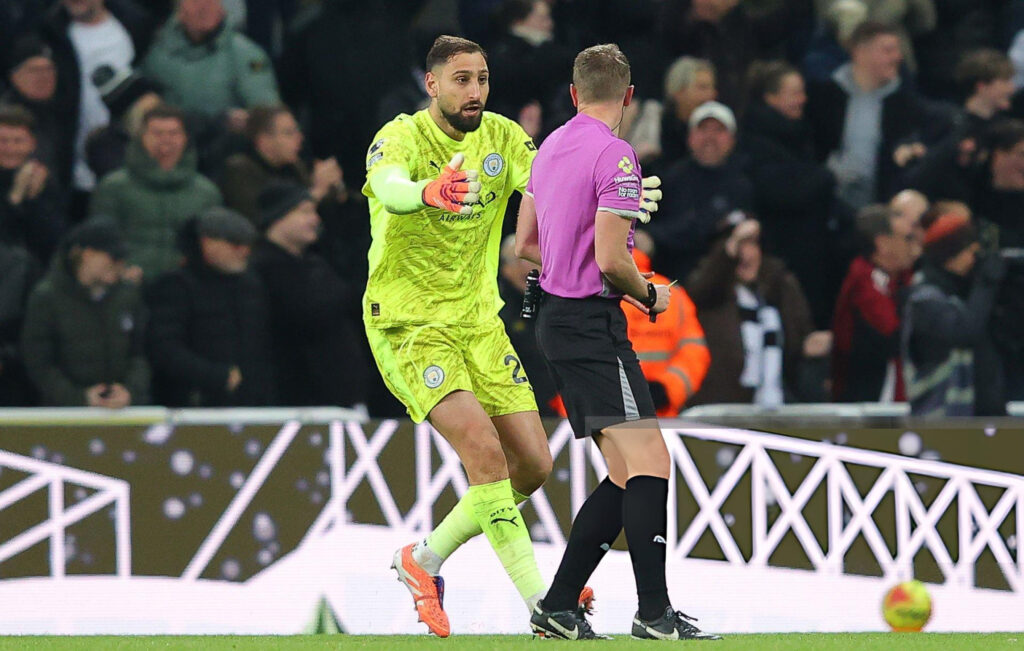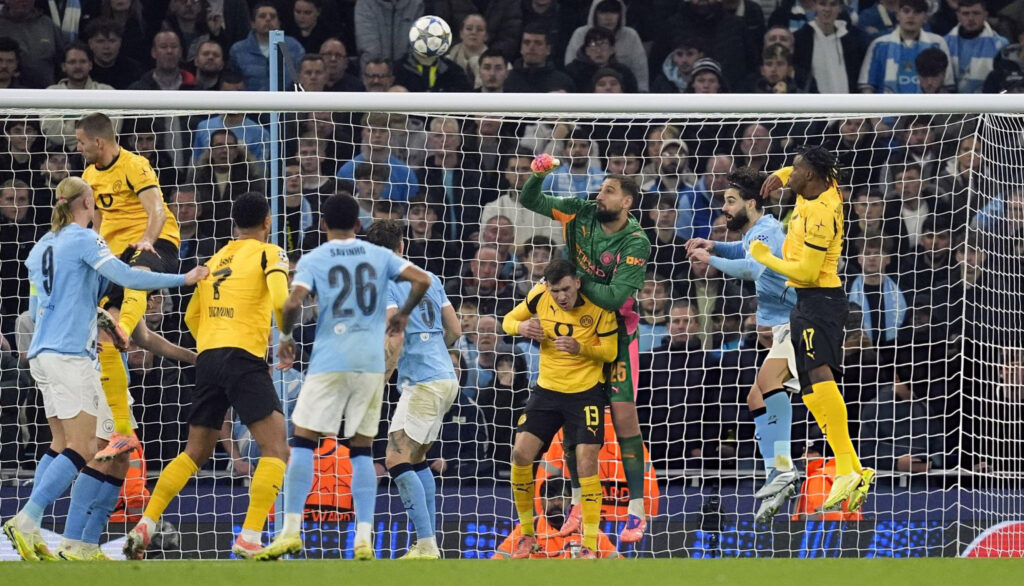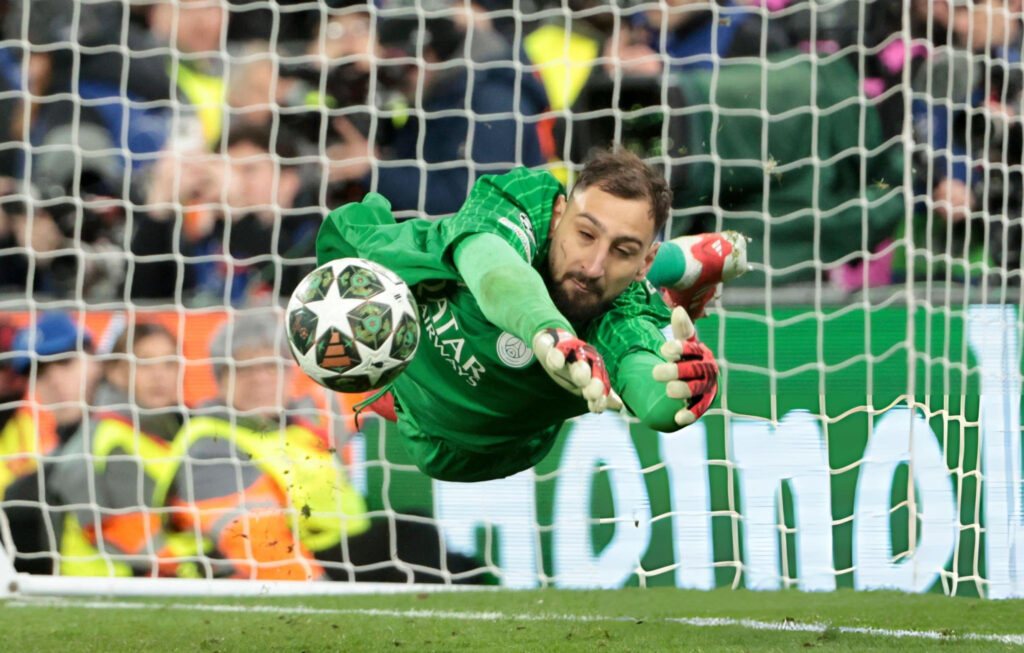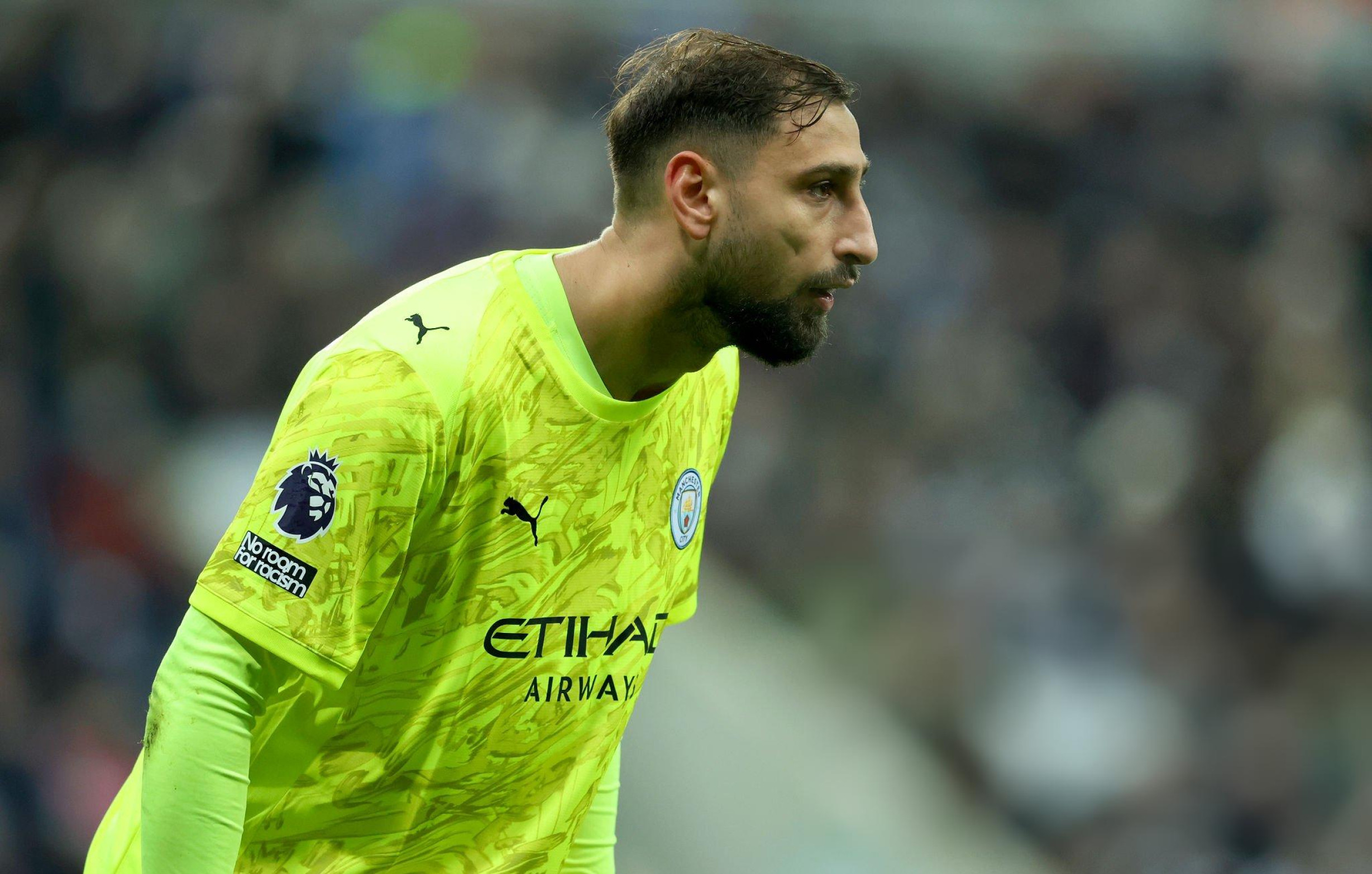When Manchester City secured the signing of Gianluigi Donnarumma, much of the discussion centred around his perceived weakness with the ball at his feet – particularly in comparison to the man he replaced, Ederson. But almost three months into life at the Etihad, it’s not passing that’s proving his greatest challenge, but instead the rough-and-tumble approach to physical contact inside the penalty area that defines Premier League football.

City’s defeat to Newcastle on Saturday summed up both sides of Donnarumma’s game. He impressively came out on top in a duel with striker Nick Woltemade, becoming the first goalkeeper to keep out the German forward after he had scored with all six of his previous efforts on target.
The Italian made three crucial stops to maintain parity in a thrilling first half. Had Phil Foden and Erling Haaland converted their chances at the other end, Donnarumma would likely have ended the match being applauded. But as always, goalkeepers are remembered for errors rather than heroics, and the decisive moment arrived when Newcastle earned a second-half corner.
Aerial barrage causes chaos
He almost conceded an Olimpico direct from Sandro Tonali’s curling corner, only for Josko Gvardiol to nod it away. Donnarumma remained grounded momentarily, and after getting back to his feet, struggled again when faced with successive aerial deliveries. Bruno Guimaraes’ header rattled the crossbar before Harvey Barnes forced the rebound home.
The Italian was incensed by what he perceived to be excessive force from Barnes, but the challenge was far from extreme and no different to the treatment goalkeepers often receive in England. His angry appeal to referee Sam Barrott earned him his third yellow card in nine league outings – just two more bookings away from suspension.
Donnarumma arrived with a history of disciplinary issues, picking up 29 yellow cards and two reds in club and international action from his 2017 AC Milan debut up to his transfer to City in 2025. At his current rate, he’ll be earning a ban roughly every 15 matches.
Needs to adapt quickly
He wasn’t the only City member to lose composure at St James’ Park. Pep Guardiola vented his frustrations towards the referee and even a cameraman, while Ruben Dias complained about unclear regulations.
“Why are we allowing their player to shove our keeper out of goal?” questioned Dias. “In the second goal, Gigi is being forced out of his area and nothing is done.”
Guardiola provided a more pragmatic response, stating:
“He thinks when he goes up and touches the ball, he wasn’t stable. What can I say? Gigio will learn.”
Learn he must – because the Premier League won’t modify its style for one disgruntled new arrival. Physical battles are a core part of the division’s identity, and Donnarumma is far from the first player to find that out.

Manchester United’s new keeper Senne Lammens recently commented on the physicality:
“I’ve never seen players get away with what they do to the goalkeeper. Sometimes it’s like a war in the six-yard box. They pull you, hold you, do everything – and refs often let play go. That’s Premier League football, and you have to adapt to it, though it’s tough for any keeper.”
United boss Ruben Amorim was also surprised by the importance of set-piece battles compared to Portugal:
“Here it’s completely different, especially the level of contact goalkeepers face from defenders.”
This season has seen a tactical shift towards long balls, throws, and set-piece strength – and unless Donnarumma adapts quickly, Guardiola may be forced to reconsider his options. James Trafford, who has long dealt with these physical demands, could provide an alternative.
Warning signs ignored
Saturday marked the second incident in a month where Donnarumma failed to deal with a corner and blamed officiating rather than accepting fault. Against Bournemouth, he claimed his arm was caught by David Brooks before mishandling the ball, leading to Tyler Adams scoring on the rebound. Despite it not preventing him from reaching the ball, his weak punch left him vulnerable. He confronted referee Anthony Taylor at the time and again during the interval.
That moment seemingly alerted Newcastle during their tactical preparations to target his vulnerability under high balls, and it won’t go unnoticed by future rivals. His reaction to Barnes’ winning goal overshadowed an early misjudgment where he almost gifted an opener after playing a risky short pass to Phil Foden, subsequently dispossessed by Joelinton before Barnes fired towards goal.
World-class shot-stopper, flawed in other areas
Though he saved the shot comfortably, the episode underlined the long-standing concerns over his distribution – precisely what made his recruitment so fascinating. Guardiola was instrumental in redefining goalkeeper involvement in build-up play, yet he’s also sharp enough to recognise tactical evolution, with shot-stoppers less in demand for playmaking than they used to be.
The coaching team, particularly goalkeeping coach Xabier Mancisidor, undeniably valued Donnarumma as an elite-level goalkeeper with immense experience and shot-stopping prowess – evident in dramatic saves like his dive to deny Bryan Mbeumo in the Manchester derby. But they seemingly did not factor in just how prominent direct and aerial tactics have become this season, and how ill-equipped he currently is in facing them.

Time to step up, not lash out
Donnarumma initially made a solid impression at City precisely because he prioritised his strengths. In his debut against United, he launched most of his goal kicks long and stood tall during defining moments like his block from Mbeumo’s volley. He delivered well at Arsenal, made a vital double-save against Aston Villa, and looked unbeatable against Brentford when Igor Thiago broke through.
After that performance, Guardiola remarked:
“When they told me he’s 26, it felt like he’s played football for centuries. His calmness, his presence. At top clubs, you might only face one key moment – and you must save it.”
That type of commanding stability helped City secure victory, complemented by Haaland’s clinical finishing. But just as Bournemouth did, Newcastle exploited his key weakness. While a Champions League tie against Bayer Leverkusen may provide temporary relief, league opponents already know how to unsettle him.
Instead of rising to the bait and berating officials, Donnarumma must rise to the challenge.

